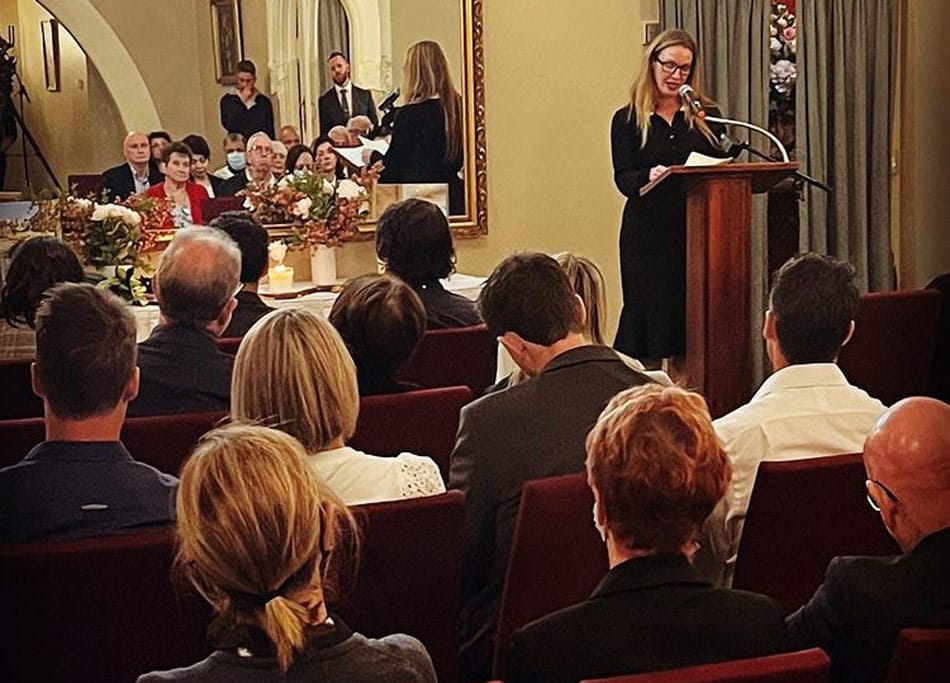Decoding the Difference
When someone close to us dies, we find ourselves facing a large number of tasks and decisions that need to be made and completed before we can get on with the grieving process.
The first is what to do with our person now that their body is no longer alive.
And the second is whether to hold a farewell for them, and if so, in what capacity.
As you navigate this process, there are two vital players that you will work with to achieve these two tasks, namely the Funeral Director and Funeral Celebrant.
Having worked as both, I am asked all the time; what is the difference between my two jobs and how do they relate to the family of the deceased?
These roles might seem similar, but they bring distinct flavours to the funeral mix.
Let’s dive into the world of Australian funerals and uncover what sets a funeral director apart from a funeral celebrant.
What does a Funeral Director or Funeral Arranger do?
Role and Responsibilities:
Think of a funeral director or funeral arranger (same thing, different terminology) as the ultimate logistical ninja.
These professionals handle all the practical nitty-gritty that goes into arranging a funeral.
Their job is like the choreographer of the entire process, making sure everything happens according to legal requirements, and to your requirements as well.
Here’s what they do:
Body Matters and transport
Funeral directors manage the transfer of the deceased from the place of death to the funeral home or mortuary.
If they are currently at the coroners, the funeral director will handle the transport from the coroners to the mortuary, funeral home or even your home for a vigil if you wish.
They organise the body preparation for viewing, burial or cremation and will liaise with the mortician to make sure your person is wearing the right clothes, jewellery and makeup in line with what you have requested.
They will also let you know the costs of cremation or burial and empower you to make the decisions that feel right for you and your person.
You might be considering a direct cremation only, which means that you are skipping the funeral for now.
Some people like this as a cost-effective option, others need to wait for family to come from overseas or the like and postpone any send-offs until a later date.
Funeral Planning
The funeral director works closely with the family to plan the funeral, from picking the casket or coffin to booking the funeral venue, date, newspaper notices and flowers.
Do you need catering, alcohol or something extra like a dove release?
Your funeral director can source and book that for you.
They also deal with any religious or cultural customs and relevant churches, if it’s not to be a civil service.
They will book a Priest, Reverend or Minister and act as support staff on the day.
Logistics
Coordinating is their game.
Funeral directors make sure the body reaches the funeral location, and then cemetery, or crematorium on time.
Plus, they manage the schedule for the service and gatherings, booking in all staff, audio visual operators, funeral live streaming, and any other suppliers required.
Documentation
Funeral directors handle the necessary paperwork, including obtaining the death certificate, permits for burial or cremation, and any legal documentation required for the process.
Professional and emotional support
They’re more than logistics maestros – they offer support to families dealing with grief, guide them through the process, lending a listening ear and making sure wishes are respected.
What does a Funeral Celebrant do?
Role and Responsibilities:
A funeral celebrant, on the other hand, is someone who specializes in creating and conducting personalised and meaningful funeral ceremonies.
While funeral directors focus on the logistical and practical (behind-the-scenes) aspects of a funeral, celebrants concentrate on designing a funeral service that reflects the life, values, and beliefs of the deceased, as well as the wishes of the family.
In other words, they are the ones standing up front, holding space and leading the proceedings.
Here’s what they’re all about:
Designing the Ceremony
Funeral celebrants work closely with the family to craft a ceremony that speaks of the personality and values of the deceased.
They put together a service that may include music, readings, speeches, and rituals that hold significance for the family and their person.
Writing and Delivering Eulogies
Celebrants often assist family members in writing eulogies or tribute speeches.
Depending on the family’s wishes, they can completely write the eulogy and deliver it on the day.
Coordinating the Ceremony
Funeral celebrants oversee the flow of the ceremony, ensuring that all planned elements are seamlessly integrated.
They provide guidance to speakers and other participants, making sure everything flows smoothly and the ceremony’s vibe is just right.
Facilitating Reflection
Celebrants create an atmosphere that encourages reflection and healing.
They guide attendees through moments of remembrance and contemplation, fostering a sense of closure and space to honour the life that was lived.
Personalisation
What makes funeral celebrants special is their knack for personalization.
They tailor the ceremony to the departed and the family, making it a true reflection of the individual being honoured.
Collaboration between Funeral Directors and Funeral Celebrants
While the roles of funeral directors and funeral celebrants differ in their focus and responsibilities, they often work collaboratively to create a comprehensive funeral experience.
The funeral director handles the practicalities of the funeral, while the celebrant adds a personalized and emotional touch to the ceremony.
This collaboration ensures that both the logistical aspects and the emotional needs of the family are met.
Here at Picaluna, our Funeral Directors are also celebrants and often carry out both roles when working with a family.
This provides an excellent opportunity for consistency and continuity in taking care of your person and arranging the send-off, just the way you’d like it to be.
Picking Your Dream Team
When it’s time to arrange a funeral, picking the right players is key to nailing the farewell vibe.
For the practical stuff, turn to a funeral director.
If you’re all about crafting a ceremony that’s as unique as the person you’re saying goodbye to, a funeral celebrant is your go-to.
You are not compelled to use a celebrant that comes with the funeral director, so feel free to suggest your own, if you have found someone that is going to be the perfect fit for the day.
So, there you have it – the difference between funeral directors and funeral celebrants in Australia and how they work together (or as the same person) to bring families the perfect send-off.
They each bring their own superpowers to the table, ensuring that every farewell is practical, meaningful and a fitting tribute to a life lived.
Whether it’s the behind-the-scenes logistics or the heart-on-sleeve ceremony, these two professionals work in harmony to provide grieving families with comfort and support when navigating the process of saying goodbye.
Appreciating the differences between these roles can help families make informed decisions avoiding having them made on their behalf without clarity and understanding.
We at Picaluna are all about transparency and empowering our clients – shedding light on a mysterious industry… until now!
Funeral Celebrant and Director





